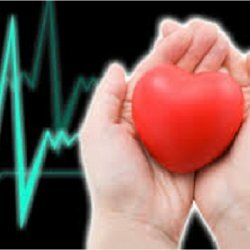Acute coronary insufficiency

Acute coronary insufficiency is a condition that is caused by spasm of the coronary vessels. Also, an attack can cause accumulation in the heart muscle of under-oxidized metabolic products, which irritate the receptor heart device. In addition to the functional cause of acute coronary insufficiency, an important role is also played by the emotional factor. Stresses, negative emotions increase the frequency of seizures, which can provoke the further development of myocardial infarction.
At rest, pain occurs usually at night and indicates a deep lesion of the coronary vessels, their inability to deliver oxygen to the myocardium in sufficient quantities. Coronary stress failure occurs with intense physical exertion - while the delivery of oxygen to the heart can not cover its needs.
Clinic
The attack usually occurs suddenly - there is a strong pain behind the breastbone of a pressing or compressive nature. Pain can be given to the left arm, to the shoulder, to the left half of the neck and even to the lower jaw. With the rapid spread of atherosclerosis in the coronary vessels, pain covers both halves of the chest, as well as the right arm. At the time of the attack, the patient instinctively tends to maximum rest: he stops abruptly, if the attack is overtaking while walking, assumes a comfortable position if there was a state of rest. Usually, with an attack, the pulse sharply increases.
The duration of the attack is usually small - from 2 to 20 minutes. If the attack lasts more than 40 minutes, it can be assumed that there is a possibility of myocardial infarction. This can be focal dystrophy( transitional forms), small-focal infarction, or even more common forms of myocardial necrosis.
Diagnosis and symptoms
Differential diagnosis of coronary insufficiency often presents considerable difficulties. Typical features are sudden occurrence, acuity of pain, localization of pains behind the breastbone, pressing and compressing their character and arising difficulties of breathing. Another point is an irresistible man's craving for peace, as this makes it somewhat easier or even completely relieves of pain.
There are also atypical forms of the disease, when the pain does not appear in the sternum, but in the hand or only in the hand. Sometimes the attack begins with pain in the left side of the neck or left in the lower jaw. However, even with such atypical forms of coronary insufficiency, there is a sudden appearance, a connection with physical exertion and a noticeable relief at rest. Also, in any form of the disease, the pain disappears quickly enough after an immediate intake of nitroglycerin tablets or after inhaling amyl nitrite. This does not happen with pain in the heart of a different origin.
Other pains resembling a coronary artery attack occur as a result of a breakdown in the nervous system of the heart. Their thoracic should be called cardialgia. They can occur for the following reasons:
- is an inflammatory process in the heart muscle or pericardium;
- lesion of the higher parts of the central nervous system( neurosis);
- lesion of the thoracic and cervical parts of the sympathetic nervous system;
- intercostal neuralgia;
- left-sided dry pleurisy;
- diaphragmatic hernia.
Pains of the type of cardialgia are distinguished by a certain uncertainty, varying intensity on different days of localization, lack of connection with physical activity, lack of need for rest. The nature of such pains is piercing, aching, and sometimes pains of a sharp burning nature occur.
Help with acute coronary insufficiency
The patient needs to urgently take the most convenient position for him, take a tablet of nitroglycerin, urgently call an ambulance. In the absence of nitroglycerin, you can take validol, although it is less effective. Only a cardiologist should treat coronary insufficiency. He will find out the cause of heart disease and will prescribe the appropriate correct treatment.
If the disease caused vascular changes( atherosclerosis, embolism), then doctors prescribe drugs to lower blood cholesterol, anticoagulants, etc. In the psychophysiological nature of seizures, can prescribe sedatives, as well as other medications needed for complex therapy.



